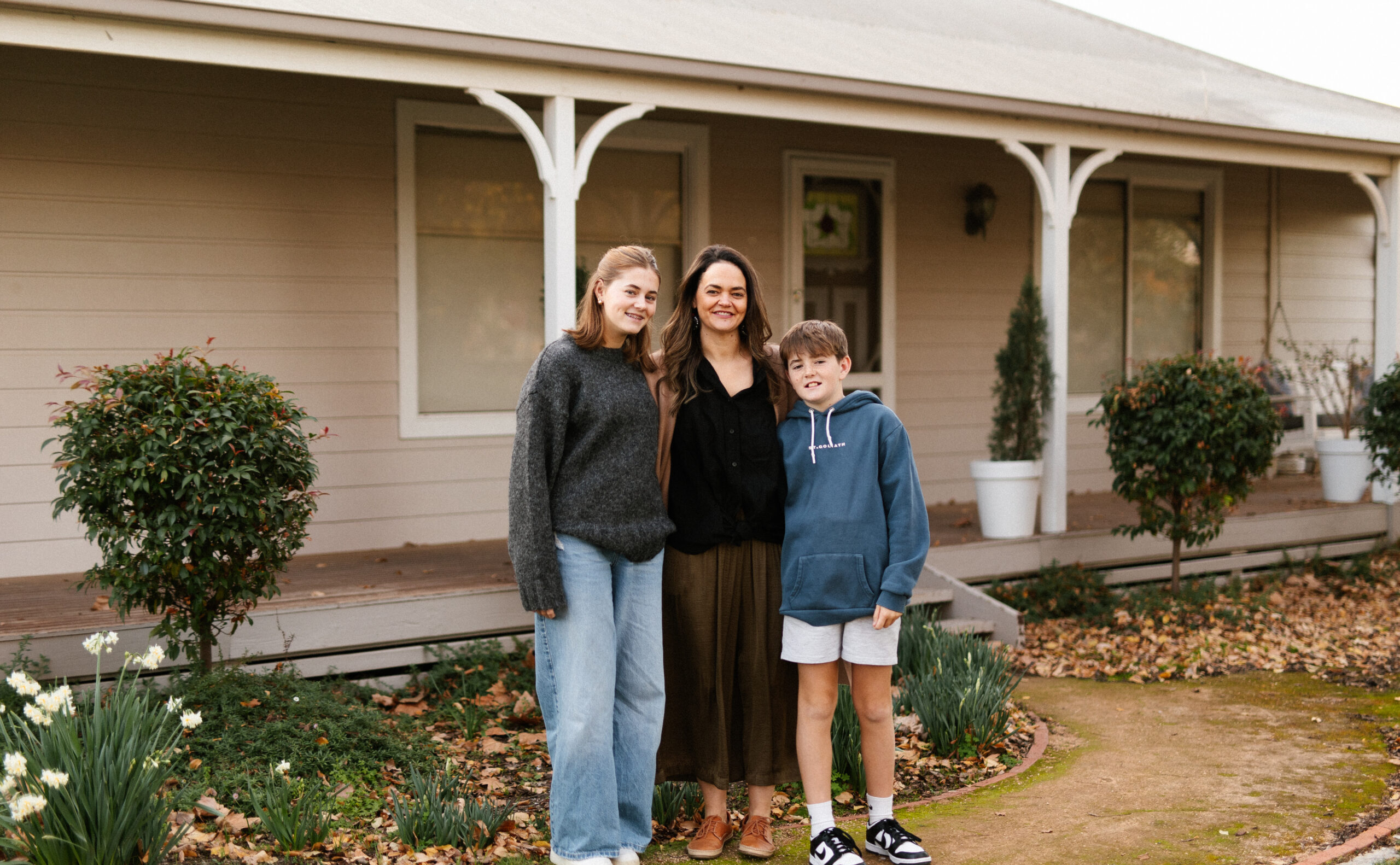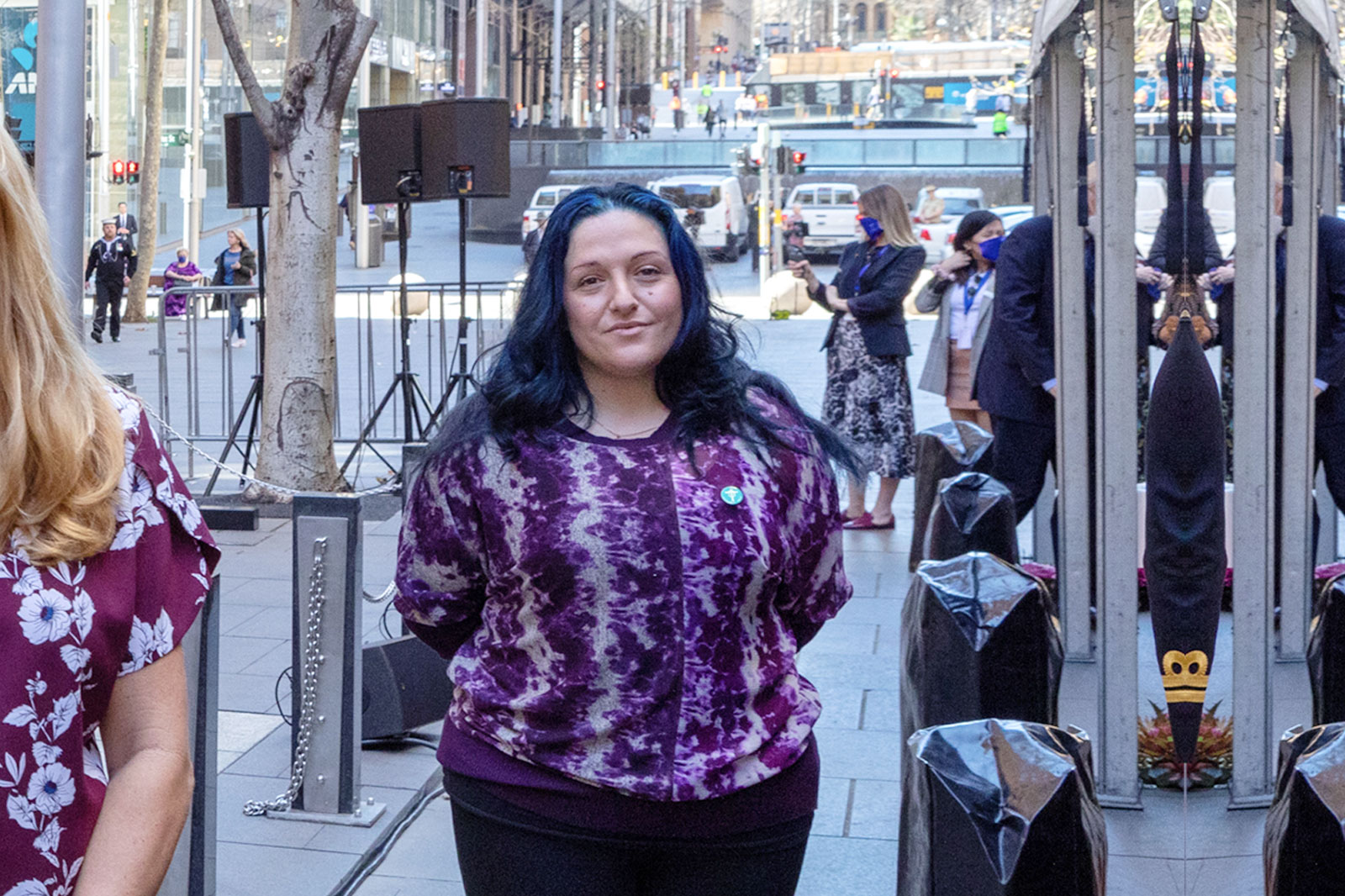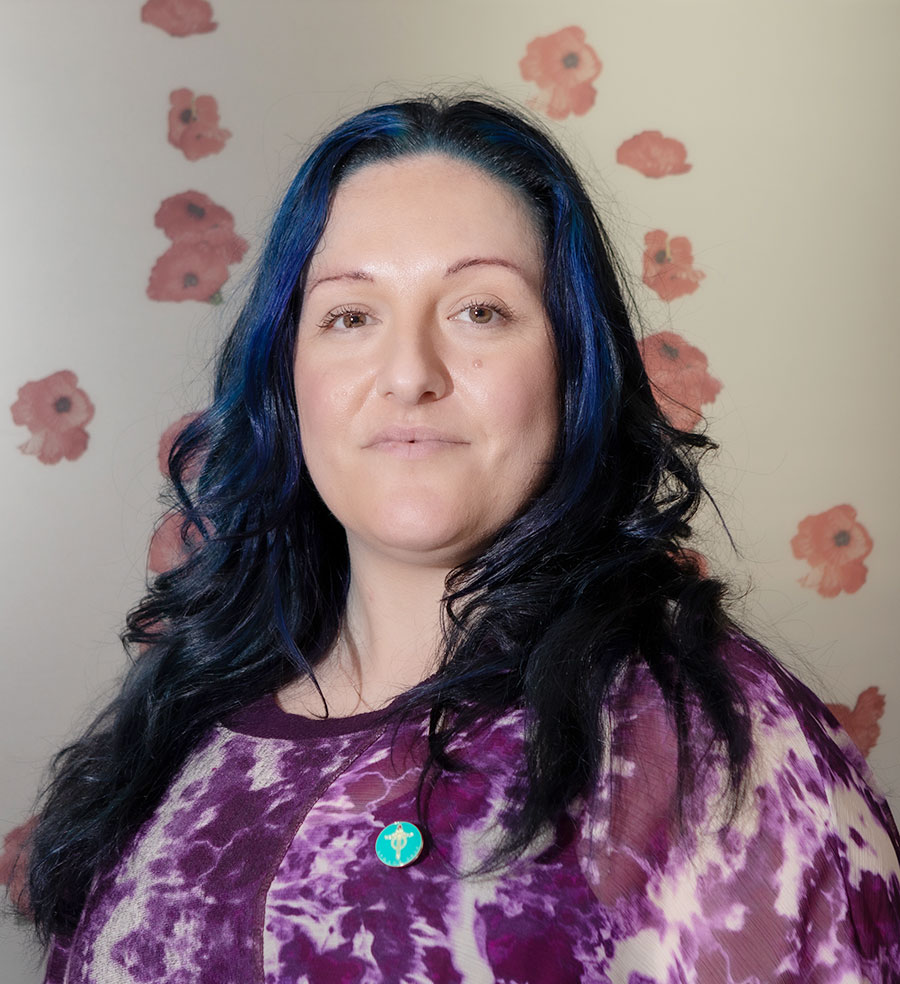
Kosha, Lila & Ari
Kosha, Lila and Ari joined Legacy after they lost Nathan, their husband and father. Legacy has supported the family through their grief, providing the support they need to navigate life ...
Read story
Monica Weisser was raised by two incredible grandparents. Her mother, who had suffered from chronic schizophrenia since her teenage years, was never well enough to look after her.
Her father, Paul, served with the 5th Battalion during the Vietnam War. “From the photos I have seen, he was a handsome man, and my mother adored him.”

But Paul was wounded, both physically and mentally, during the war. “When he returned to Australia in the early 1970s, there was little understanding of Post-Traumatic Stress Disorder, and so he turned to alcohol to cope with his anxiety,” Monica tells. “When I was born, both of my parents were too ill to care for me, and lived a long way away.”
Monica’s Dad passed away when she was just six years old. She had only met him once as a baby, and has no memories of him.
Monica is so proud of her Dad for serving his country, even though he paid the ultimate sacrifice of his life. “Even though my Dad couldn’t be there for me, Legacy has been a part of my life for as long as I can remember,” Monica says. “It has given me the opportunity to experience amazing holidays and activities, which I will be forever grateful for.”
The local public high school that Monica attended was rough, and there was little support for teenagers with learning disabilities. “Legacy helped my grandparents secure a position for me at St Scholastica’s [College], a Catholic girl’s school nearby where we lived. The principal and teachers were kind and considerate of my learning disability” Monica says.
“When I was diagnosed with dyslexia, Legacy helped me with tutoring to assist in furthering my education.”
Although Monica still has difficulty with learning, she was able to successfully graduate with a Bachelor of Social Science, majoring in Counselling. Legacy were able to help Monica achieve this by providing a laptop for her studies, which Monica is “extremely grateful for”.
Monica was looked after by Legatee John Robinson, who she remembers as a very “kind and generous man.” John was aware of Monica’s family and personal circumstances, and checked in frequently with her and her grandparents as she was growing up.
Turning her teenage years, her Legatee helped Monica’s grandparents to request funds from Legacy for some small renovations they desperately needed on their family home. Monica still lives in that house today with her uncle, who also has schizophrenia, and her grandmother who is now 92 years old. “I care for them both as much as I can,” Monica says, “but with the help of both of my aunties.”
Monica was also able to attend holiday camps, which she says were some of the most memorable years of her adolescence. “I will never forget the fun I had on those camps, and the people I have been lucky enough to meet.”
Going on the camps made Monica realise how significant Legacy is to so many others; not just those in Sydney, but Australia-wide.
The first camp Monica went on was to Moss Vale Legacy House, 90 minutes inland from Sydney. She remembers feeling at home with all of the “beautiful paintings and old furniture.”
It was at this camp, and the various others that followed, that Monica discovered the real meaning of Legacy: “to give love, help and hope to the families and children of the brave men and women, like my father, who have sacrificed their lives [or health] for peace.”
Monica has been able to represent Legacy on a number of occasions, including marching on Anzac Day, saying the Ode at the War Memorial in Hyde Park, or speaking at events like the Legacy Week Launch. She comments “what a privilege it is to be part of something so special. I know I’m making my Dad proud.”
Each Anzac Day, Monica stops to reflect on her father, and the commitment he made to protect our country. As an adult, she believes it is so important to reflect on those who have been so brave.
Monica wants others to know of the importance of looking after veterans. “When they return from war, their lives are changed forever. They can never take back what they have seen or experienced.”
“I imagine that my father would have been isolated in his thoughts; the anxiety that he would have felt in trying to fit back into society.” Monica reflects, saying that at the time, most people didn’t feel the need to “share such intense memories.”
PTSD was never mentioned back then, but it is today. “Our soldiers deserve our help and support.”
Legacy has been able to give Monica “so many gifts.” “The gift of education and the tools to provide for myself have resulted in me being able to work in the health industry myself and help others with mental illness.” “The gift of education, through marches and camps.
“Although we’re all so different, the one thing we share is our bond with Legacy.”
“Legacy has given me so many opportunities so that I can be the best person I can be.”